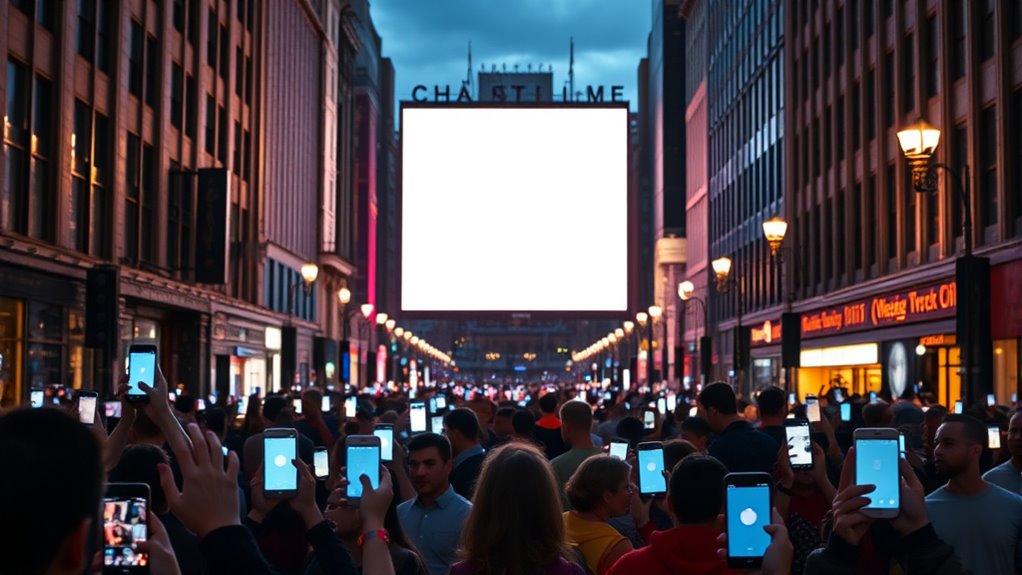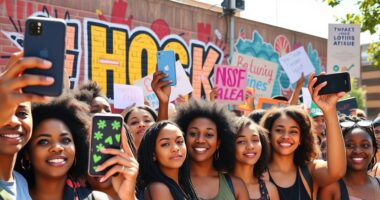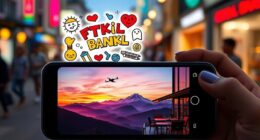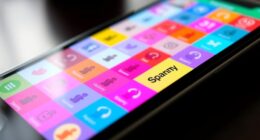A social media blackout can effectively boost your mental health by reducing overstimulation, anxiety, and digital dependence. It helps you reset your mind, develop healthier boundaries, and reconnect with what truly matters. While you might initially feel disconnected, many experience a sense of calm and clarity afterward. These breaks are a powerful way to evaluate your digital habits and foster well-being. If you want to explore how to make the most of these breaks, you’re in the right place.
Key Takeaways
- Social media blackouts act as digital detoxes, reducing overstimulation and mental clutter.
- They can decrease anxiety, stress, and FOMO by removing constant notifications and online validation.
- Blackouts often lead to increased mental clarity and healthier online habits over time.
- Short-term feelings of disconnection may occur, but long-term benefits include better emotional safety.
- Planned or sudden, social media blackouts effectively support overall mental health and digital well-being.

Have you ever wondered what happens when social media platforms suddenly go dark? It might sound like a nightmare for many, but it can also be a surprising opportunity to reflect on your mental health. When access to social media is suddenly cut off, you’re forced to confront what you’re missing and how much time you usually spend scrolling through feeds. For some, this unexpected blackout acts as a much-needed digital detox, helping to reset mental clutter and reduce anxiety. Without the constant notifications, likes, and messages, your mind can breathe a little easier. You might notice how much mental energy you devote to comparing yourself to others or feeling overwhelmed by the endless stream of information. This pause can be eye-opening, revealing just how dependent you’ve become on social media for validation and connection. It’s an unintentional but effective way to step back and prioritize your mental health, even if just temporarily. Recognizing the importance of emotional safety can help you create healthier boundaries around your online presence.
During these blackouts, many people find relief from the overstimulation that social media can cause. The constant urge to check your feeds, the fear of missing out, and the pressure to keep up all contribute to stress and fatigue. When social media goes dark, you might initially feel anxious or disconnected, but soon, a sense of calm can emerge. This break allows your brain to rest from the digital noise and gives you space to engage in other activities that promote well-being. Whether it’s reading, taking a walk, or simply being present with loved ones, you begin to realize how much of your mental health relies on constant digital consumption. The absence of social media can serve as a catalyst for a mini detox, helping you regain control over your habits and emotions. It’s an opportunity to evaluate whether your online interactions are truly beneficial or just draining.
While it might seem intimidating at first, a social media blackout can be an effective way to improve your mental health over time. It pushes you to create boundaries and develop healthier digital habits. You start to understand that you don’t need to be connected 24/7 to feel fulfilled or informed. Instead, the break highlights the importance of taking care of your mental well-being by limiting digital distractions. Many find that these blackouts foster a sense of clarity and help set the stage for more mindful social media use in the future. They serve as a reminder that sometimes, stepping away from screens is exactly what you need to reconnect with yourself and prioritize your mental health. All in all, social media blackouts, whether planned or sudden, can be a powerful tool for fostering mental clarity and encouraging a healthier relationship with technology.
Frequently Asked Questions
What Are the Psychological Effects of Social Media Blackouts?
When you experience social media blackouts, you might notice changes in your psychological state. These breaks can reduce addictive behaviors, helping you regain control and lessen dependency. You may also find it easier to improve emotional regulation, as you’re less exposed to constant stimuli and comparison. However, in some cases, you could face feelings of loneliness or anxiety initially. Overall, blackouts can promote healthier habits by encouraging mindfulness and self-awareness.
How Long Should a Social Media Blackout Last for Effectiveness?
You might think there’s a magic duration for a social media blackout, but the ideal length varies. To maximize impact, aim for at least a week—long enough to reset your habits and see real benefits. Shorter blackouts may have limited effects, while longer ones risk losing momentum. Ultimately, the duration impacts your mental clarity and digital boundaries, so tailor the blackout to fit your goals and lifestyle for the best results.
Do Social Media Blackouts Improve Mental Health Outcomes?
You might find that a digital detox or mindful unplugging can boost your mental health. When you disconnect from social media, you reduce stress, anxiety, and comparison triggers. Regularly taking breaks allows you to reconnect with yourself and the present moment. While it’s not a guaranteed cure, making these practices part of your routine can lead to noticeable improvements in your overall mental well-being.
Are Social Media Blackouts Equally Effective Across Different Age Groups?
You might find that social media blackouts impact age groups differently. For example, teens report a 30% increase in well-being after temporary breaks, while adults see less change. Age-specific strategies are essential because generational differences influence how people respond. Younger users often benefit more, so blackouts may be more effective for them. Tailoring approaches based on age helps maximize mental health benefits across diverse groups.
What Alternatives Exist if a Social Media Blackout Fails?
If a social media blackout doesn’t work, you can try a digital detox instead. Take breaks from all screens, not just social media, to reset your habits. Practice mindfulness to become more aware of your online habits and reduce compulsive scrolling. These alternatives help you regain control, improve focus, and foster healthier digital relationships, making it easier to manage your social media use more effectively than a blackout alone.
Conclusion
So, do social media blackouts really work? It’s clear they can help you reset, reduce stress, and regain focus, but their effectiveness depends on your goals. Will turning off your feeds truly change your habits, or is it just a temporary fix? Ultimately, it’s up to you to decide if a blackout is worth trying. Are you ready to see what life’s like beyond the screen? The choice is yours—what’s stopping you?










